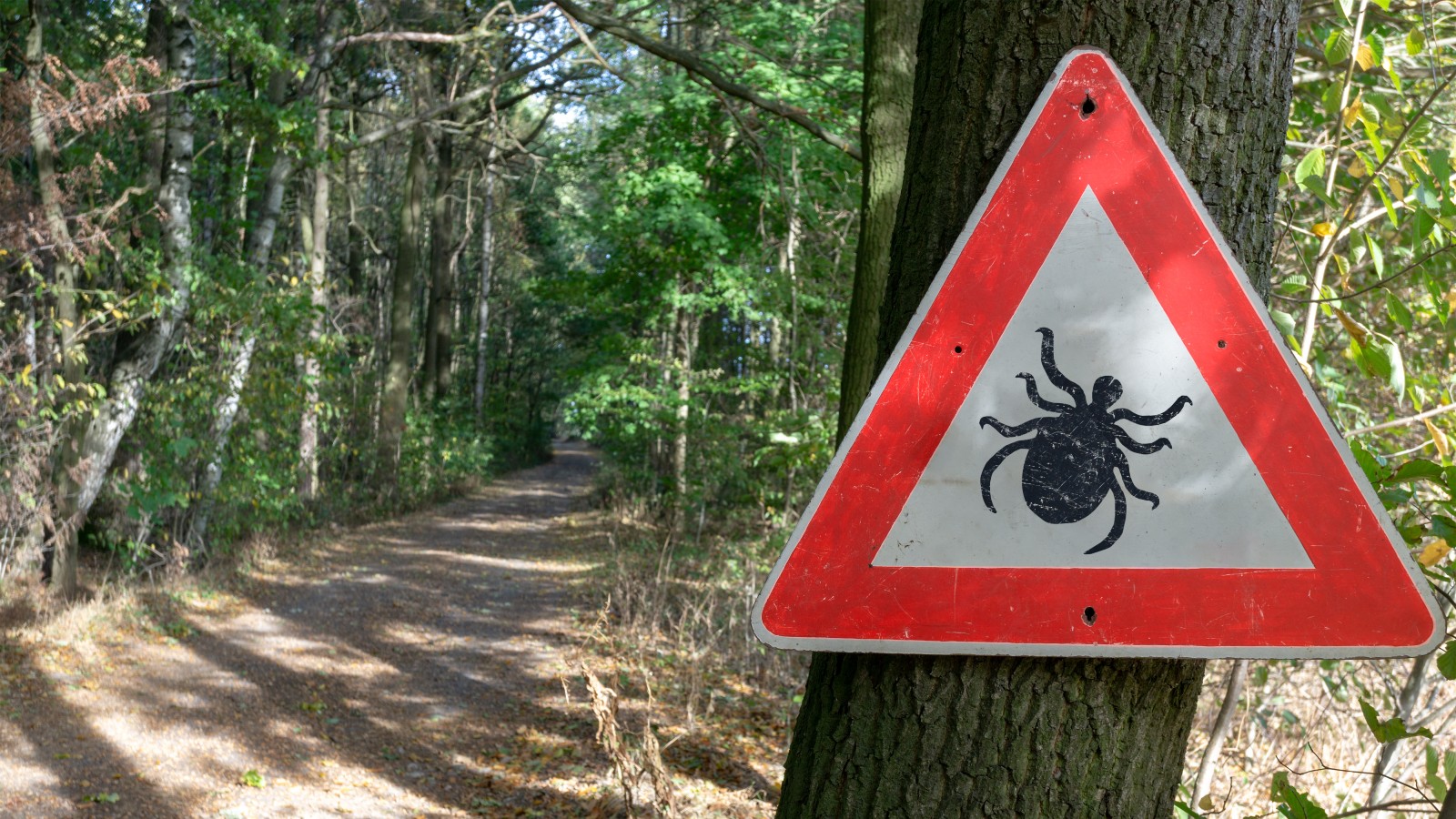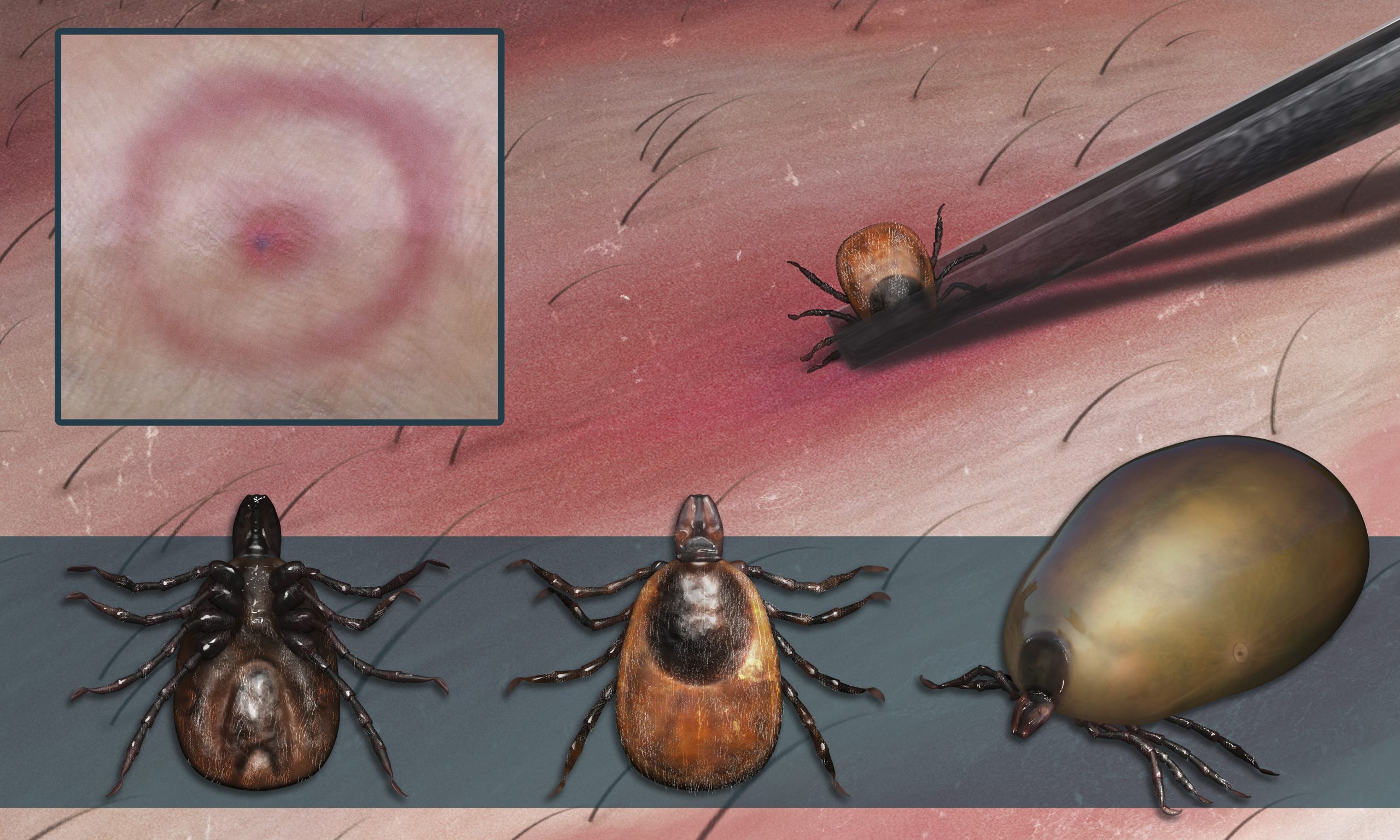Travellers warned about a new 'unusually high' virus outbreak that can cause deadly brain disease


Travellers have been warned about a new virus outbreak that can cause deadly brain disease after reports of a rise in the number of cases.
As Coronavirus travel restrictions continue to ease, millions of people around the world will be looking for their next holiday adventure but travellers have been warned against letting their guard down after an 'unusually high' surge in deadly brain disease has been found in ticks.
So far the warning has been issued in the US after an 'unusually high' number of ticks were found to be carrying the deadly neurological disease - the Deer Tick Virus.
But there are fears the virus could spread further with more people expected to go travelling or on holiday.
It comes after more than 90% of ticks sampled in the Lawrence Township Recreational Park, in Clearfield County, Pennsylvania, were found to carry the rare and potentially fatal Deer Tick Virus.
To highlight how fast the virus is spreading, the highest infection rate previously recorded at a single location in Pennsylvania was only 11% — and for the whole of the US around 25%.
And just last year, the statewide national average infection rate for Deer Tick Virus among adult ticks was just 0.6%, according to the Pennsylvania Department of Environmental Protection (DEP).
Parenting advice, hot topics, best buys and family finance tips delivered straight to your inbox.
Despite Deer Tick Virus being rare, positive cases among the human population have been increasing in recent years, and experts have warned travellers over being vigilant - with most cases since 2008 having been detected in the Great Lakes region.
Lyme disease, which is spread by the same tick species creating a bull's-eye rash, was predicted in 2019 to increase by 20% in the coming decades, and as a result, Deer Tick Virus is now expected to see a similar rise.
While Deer Tick Virus is rare in the US, positive cases among the human population have been increasing in recent years, experts have warned, with the most cases reported since 2008.
DEP Secretary Patrick McDonnell said: “The infection rate of ticks sampled from the Lawrence Township Recreational Park is extremely high.
“Deer Tick Virus transfers very quickly through the bite from an infected tick, and the health outcomes […] are more severe than other tick-borne illnesses typically seen in Pennsylvania.”

What causes Deer Tick Virus to spread?
A combination of rising humidity and temperatures are giving a boost to tick populations and their ranges which is inevitably increasing infection rates. Meanwhile, increased urbanisation in the US is leading to growing deer and mice populations on which the insects usually feast.
But when it comes to spreading from animal to humans, the virus is a Powassan virus — and therefore a relative of the dengue, West Nile and Zika viruses — and these Deer Tick Virus' spread primarily by bites from so-called black-legged or deer ticks, which are found in the US Midwest and southeastern Canada.
Unlike Coronavirus, the infection does not spread from person-to-person by coughing, sneezing, or physical contact.
https://www.youtube.com/watch?v=1vtwQdJKjWw
Symptoms of Deer Tick Virus
Among the first symptoms of Deer Tick Virus, which can appear as quickly as 15 minutes after a bite, can include
- fever
- headache
- vomiting
- weakness
Although it's not uncommon for people to experience no symptoms at all.
But more worryingly, is that 90% of patients who were treated for Deer Tick Virus go on to develop severe neuroinvasive disease and may experience encephalitis or meningitis, both infections of the brain, according to the US Centers for Disease Control and Prevention (CDC).

Severe symptoms include:
- confusion
- coordination problems
- difficulty in speaking
- seizures
This severe infection is fatal for around 12% of patients, while half of the remainder go on to suffer from long-term health impacts.
But there are currently no vaccines to prevent the contraction of Powassan infections like Deer Tick Virus, nor medicines to effectively treat them.

Selina is a Senior Family Writer for GoodtoKnow and has more than 16 years years of experience. She specialises in royal family news, including the latest activities of Prince George, Charlotte, Louis, Archie and Lilibet. She also covers the latest government, health and charity advice for families. Selina graduated from the University of Sheffield in 2006 with a degree in Journalism, and gained her NCTJ and NCE qualifications. During her career, she’s also written for Woman, Woman's Own, Woman&Home, and Woman's Weekly as well as Heat magazine, Bang Showbiz - and the Scunthorpe Telegraph. When she's not covering family news, you can find her exploring new countryside walking routes, catching up with friends over good food, or making memories (including award-winning scarecrows!)